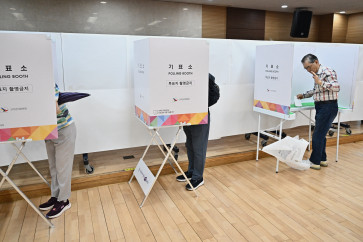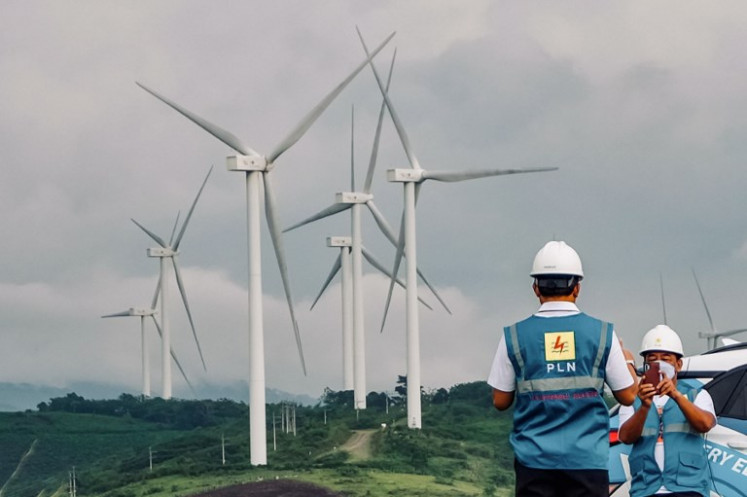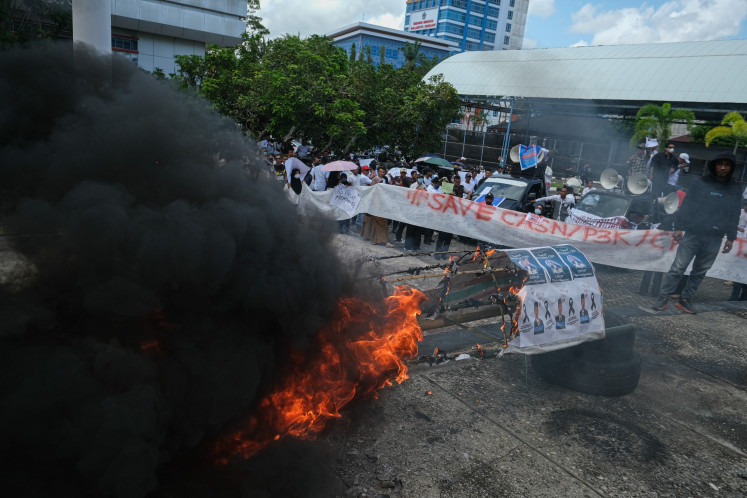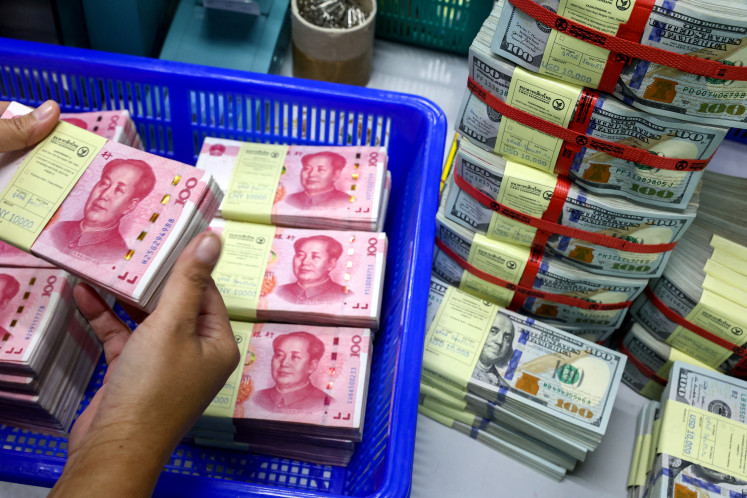Air Products’ exit deals blow to RI’s downstream coal dreams
Change text size
Gift Premium Articles
to Anyone
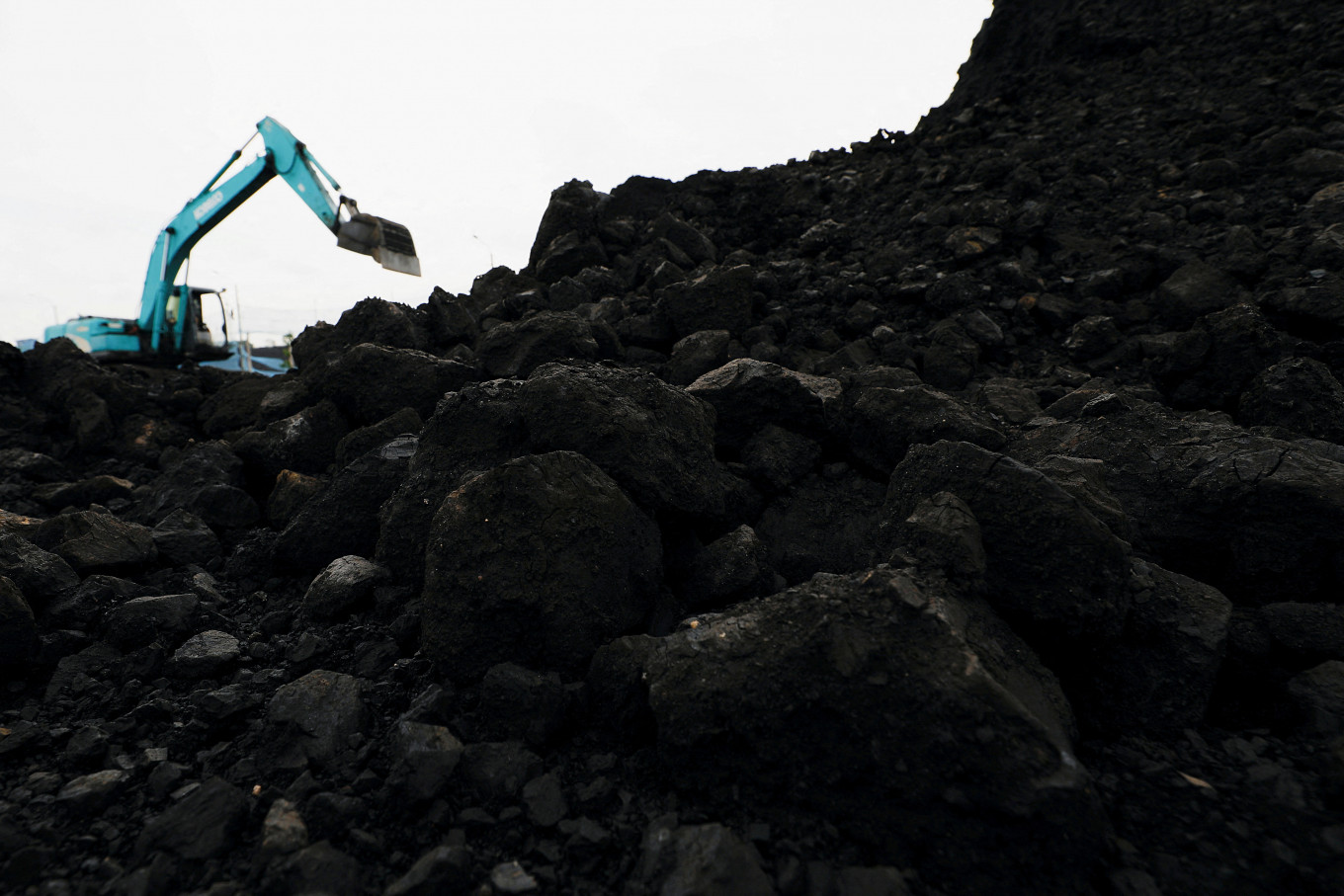
T
he withdrawal of United States chemical company Air Products from all downstream coal projects in Indonesia could spell the end of the government’s plans to develop the sector, analysts say.
Prior to its exit, Air Products had been working on gasification projects, one to convert coal into dimethyl ether (DME) and another to convert it into ethanol.
The former initiative involved state-owned mining firm PT Bukit Asam (PTBA) and state-owned oil and gas giant Pertamina, while the latter involved PT Kaltim Prima Coal (KPC) and PT Arutmin Indonesia, both subsidiaries of PT Bumi Resources, jointly controlled by the Bakrie Group and Salim.
Air Products had been expected to invest at least US$2.3 billion in the coal-to-DME gasification project alone, making it by far the largest coal gasification investment in Indonesia.
The project was supposed to help Indonesia slash its reliance on imported liquified petroleum gas (LPG) and oil.
Putra Adhiguna, an energy finance analyst at the Institute for Energy Economics and Financial Analysis (IEEFA) said Air Products’ departure represented a formidable challenge for the country’s downstream coal ambitions.
“It marks a pivotal turning point in Indonesia’s attempt to economically convert coal into other products,” Putra told The Jakarta Post on Friday.
Read also: Coal gasification ‘no easy feat’, say industry players
Putra noted that coal gasification was a generally high-emissions industry and that lowering its carbon footprint would require the construction of a high-performance carbon capture, utilization and storage (CCUS) facility.
Installing a CCUS would require a huge investment and would likely be too costly for local players to take on alone, he said.
A 2022 analysis by IEEFA found that the economic case for the gasification project was tenuous at best and warned that production costs would be so high that government subsidies would be required to make the gas affordable for the local market.
Idris Sihite, acting director general for minerals and coal at the Energy and Mineral Resources Ministry claimed the project would continue nonetheless.
He said on March 16, as quoted by Kontan, that many potential partners could take over Air Products’ role, including the China-based Sedin Engineering Company Ltd., which was exploring opportunities for downstream coal projects.
“It’s not us inviting them [the Chinese company]. Let them conclude this business to business,” Idris said.
Both PTBA and Bumi Resources said they remained committed to the project and were in the process of finding new partners.
The US company is not the only foreign company to have worked on downstream coal projects in Indonesia.
Chinese construction engineering company China National Chemical Engineering and local construction machinery company PT Powerindo Cipta Energy are conducting a feasibility study on the development of a $560 million coal-to-methanol facility in Aceh.
Coal miner PT Indo Tambangraya Megah (ITMG), too, is developing a $200 million gasification project through its subsidiary PT Indominco Mandiri that it expects to be commercially operational by 2025.
Still, without Air Products, it is unlikely that Indonesia will realize its large-scale gasification plans, Belgium-based intelligence provider Energy Monitor said in its 2022 report.
The report refers to Air Products as a major player in gasification projects around the world and says it would be hard to replace.
Similarly, analysts at Tenggara Strategics, a Jakarta-based think tank affiliated with the Post, wrote in a report that Air Products’ exit would “create a major delay” in Indonesia’s efforts to “produce added value” in the coal industry and “reduce reliance on exports”.
Read also: Analysis:Air Products exits RI’s coal downstream projects
IEEFA’s Putra said it was possible that the project would continue, but only if other companies were willing to step in with less favorable terms.
The government could also provide consumer subsidies for the project’s DME, but he warned this might not be sustainable.
The government’s current incentives for the sector include zero coal royalty obligations for mining companies that invest in downstream industries, but miners say this is insufficient to make up for the expense of establishing the new facilities.

